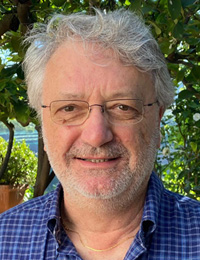IBBR Webinars


Conventional and unconventional approaches to edit higher plant genomes
Teodoro Cardi
IBBR - UOS Portici (NA) - Italy
December 14, 2022 (11:30-12:30)
Webinar Link: https://meet.goto.com/276382621
Abstract: The very large majority of genome editing protocols in higher plants are today based on CRISPR/Cas delivered through tissue culture and de novo regeneration. CRISPR/Cas represents the third generation of programmable site-specific nucleases after ZFN and TALEN. First CRISPR/Cas reports to edit higher plant genomes appeared in 2013, few months after the publication of the seminal paper of Jinek et al. about CRISPR/Cas9 development (Science 2012, 337, 816-21, doi: 10.1126/science.1225829). In the last decade, novel Cas versions allowed to develop a range of new methods for mutation induction, sequence insertion/replacement, transcriptional activation/interference, epigenetic modification, sequence-specific imaging, that could be implemented in functional studies as well as in applied breeding. In the seminar, I will present some results of our work to develop by CRISPR/Cas tomato plants resistant to parasitic plants. In addition, I will discuss issues related to organellar genome editing in higher plants and I will show some results we have obtained for mitochondrial genomes of potato using TALE-based methods. Finally, I will review novel methods to overcome present bottlenecks of genome editing in higher plants and I will present some preliminary results of our nanotechnology-based approaches
Author's Info: https://ibbr.cnr.it/ibbr/info/people/teodoro-cardi
Link to video: https://youtu.be/HzVFFDkFDqI




